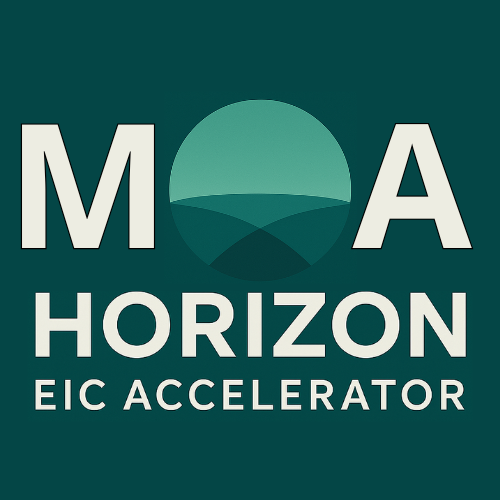EIC Accelerator Grant: Fueling Innovation in Sustainable Food Tech
In a major leap for European food innovation, MOA Foodtech has secured a prestigious EIC Accelerator Grant, marking a significant milestone not only for the company but also for the future of sustainable food systems across the continent. This funding represents a resounding vote of confidence in MOA’s groundbreaking approach, which blends artificial intelligence and biotechnology to transform agri-food waste into high-value, non-GMO ingredients.
What Is the EIC Accelerator Grant?
The EIC Accelerator, part of the European Innovation Council (EIC) under the Horizon Europe program, supports high-potential startups and SMEs that are developing disruptive, deep-tech innovations. The grant is designed to bridge the critical funding gap between laboratory discovery and market deployment. Recipients benefit from:
-
Up to €2.5 million in grant funding
-
Equity investment of up to €15 million
-
Business acceleration services and mentoring
-
Access to international investors and partners
This grant is highly competitive, with success rates under 10%, making MOA Foodtech’s selection a noteworthy accomplishment in the European tech landscape.
Why MOA Foodtech Was Selected
MOA Foodtech stood out due to its clear alignment with EU sustainability goals, particularly those outlined in the European Green Deal, Farm to Fork Strategy, and Circular Economy Action Plan. The company’s proprietary platform, Albatros, uses AI and precision fermentation to convert food industry by-products into nutrient-dense, functional proteins. These proteins are sustainable, scalable, and clean-label—meeting increasing demand from food manufacturers and environmentally conscious consumers alike.
The EIC recognized the following core strengths in MOA’s proposal:
-
Deep-tech innovation backed by strong scientific validation.
-
High environmental impact, through food waste reduction and greenhouse gas mitigation.
-
Market readiness, with commercial traction and industrial partnerships already in place.
-
Strong leadership and scalability potential, positioning MOA as a future leader in bio-based food tech.
Impact on European Food Technology
Accelerating Sustainable Food Solutions
The EIC funding enables MOA to:
-
Scale its Albatros platform, improving predictive algorithms and strain optimization.
-
Expand fermentation infrastructure, increasing production capabilities.
-
Develop new ingredient lines, targeting plant-based meats, dairy alternatives, and nutritional enhancers.
-
Advance from TRL 6 to TRL 8, ensuring technological readiness for full-scale market deployment.
Strengthening the European Food Supply Chain
MOA’s work supports the EU’s efforts to build a resilient, circular, and low-emission food system. With EU funds, the company is empowered to:
-
Reduce reliance on imported animal proteins and monoculture crops.
-
Convert EU-sourced food residues into valuable exports and local ingredients.
-
Contribute to food security, especially as climate challenges intensify.
Driving Jobs, Innovation, and Investment
The EIC Accelerator is not only a source of capital—it’s a catalyst for ecosystem growth. For MOA, this means:
-
Hiring top talent in data science, microbiology, and food engineering.
-
Partnering with academic institutions and industrial labs across Europe.
-
Attracting follow-on private investment to further commercialize the platform.
MOA’s Long-Term Vision
Backed by the EIC, MOA Foodtech envisions a future where food waste becomes a cornerstone of sustainable nutrition. The company aims to:
-
Serve as a leading supplier of fermented ingredients across Europe and beyond.
-
License the Albatros platform to global food manufacturers and agribusinesses.
-
Advocate for policy changes that encourage circular bioeconomies and food innovation.
A Model for Future EU-Funded Innovations
MOA’s successful funding journey sets an inspiring example for other startups aiming to revolutionize the agri-food and biotech sectors. It demonstrates how public funding, when combined with visionary technology and execution, can accelerate real-world impact—from climate goals to public health.
The company’s win is not just about financial support—it’s a strategic signal that the EU is serious about nurturing homegrown deep-tech champions to lead the global sustainable food movement.
